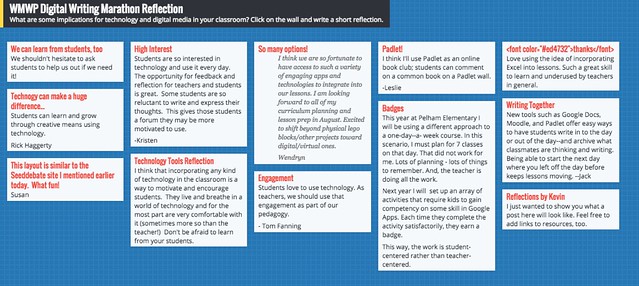Last week, I facilitated a Digital Writing Marathon through our Western Massachusetts Writing Project. Part of the intent was to invite folks from various ongoing WMWP initiatives together to play and tinker and reflect on technology.
I began by sharing the Gary Hayes Social Media Counter as a visual reminder of why we need to be at least considering the impact of technology on the lives of ours students. This sparked a discussion about the Media Lives of young people, and the important role that teachers play in helping students navigate technology.
We then moved into some collaborative writing, and we riffed off the recent #celebrateteachers concept of teachers writing about educators who influenced their lives. I really love this kind of reflective writing, and we used a simple Google Slides format to collaborate together on a single presentation. Although nearly everyone in the marathon has Google Apps for Education in their school, very few have tapped it for its collaborative power, and this activity sparked some great conversations about possibilities for shared projects and more.
From collaboration, we shifted into identity in digital spaces, and how best to help students think about how they represent themselves — and protect themselves — in various social spaces they use outside of school. I brought the group from the Digital Marathon into our Bitstrips for Schools space, and we spent some time making avatars to represent ourselves, and then shifted into how teachers might use online webcomic sites for engaging writers. Bitstrips was a hit, with lots of laughter and making.
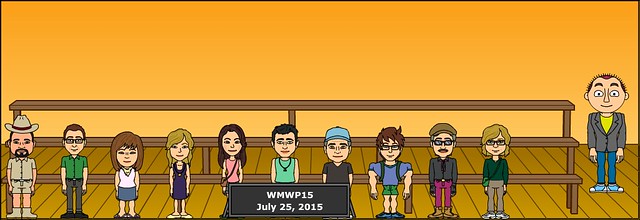
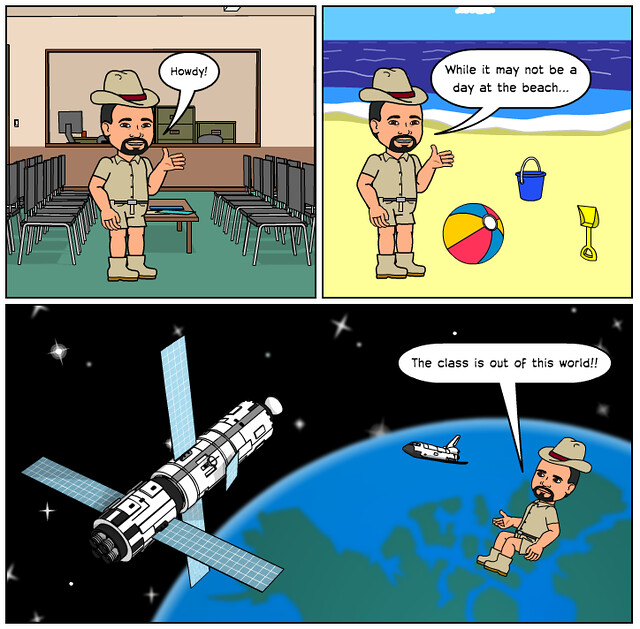
I wrote about the next activity the other day, as a WMWP colleague led us through an activity that turned a math word problem into a Google Sheets learning experience and ended with a video essay format to check for understanding.
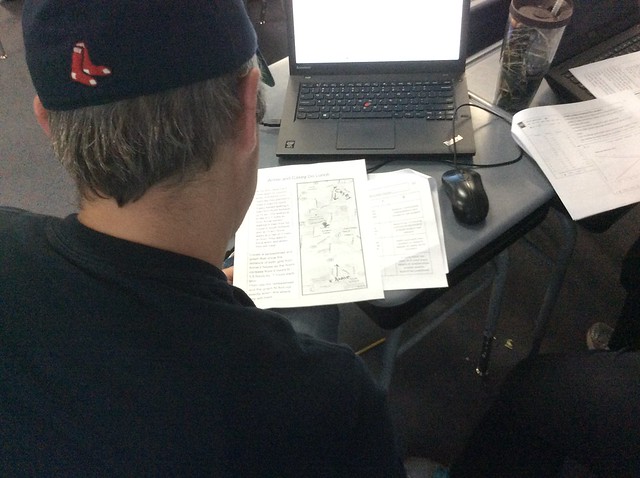 We then moved into the world of coding and programming as literacy practice, and I introduced the Hour of Code and the Flappy Birds game activity that ends in the creation of a Flappy Bird game. I framed it as another way to engage students in technology in a meaningful way. This activity was sort of hit or miss, as some seemed to get bored with it or not all that interested in programming elements (whereas my students get highly engaged).
We then moved into the world of coding and programming as literacy practice, and I introduced the Hour of Code and the Flappy Birds game activity that ends in the creation of a Flappy Bird game. I framed it as another way to engage students in technology in a meaningful way. This activity was sort of hit or miss, as some seemed to get bored with it or not all that interested in programming elements (whereas my students get highly engaged). 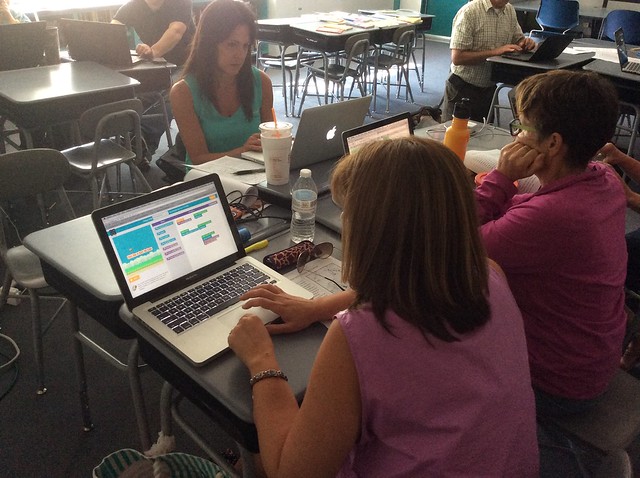
Finally, I showed them Padlet as a place for exit tickets and reflection, and I asked them to leave some thoughts on technology and learning, and a few knew of Padlet, but many did not.
The day went by quick, even for four hours of PD, and I think it had just enough balance of play and reflection to make a ripple in some classrooms this fall.
Peace (in the tech),
Kevin
PS — here are some extension activities I put in play for them. We never got to them, but they have our website to refer back to and share with colleagues.
- Need More Extension Activities?
- Want to Explore Other Avatar Sites?
- How about more coding challenges?
- Angry Birds Programming Activity
- Frozen Activity and Fractal Mathematics
- Make Some Stopmotion with ParaPara Animation
- Write a Five Image Story with Flickr Images
- Make a video game with Gamestar Mechanic
- Do some visual research with Instagrok
- Check out Mozilla Webmaker Teaching Resources about Web Literacy
- Still Not Enough?
- Check out this list of Tech Tools from the Making Learning Connected MOOC project
